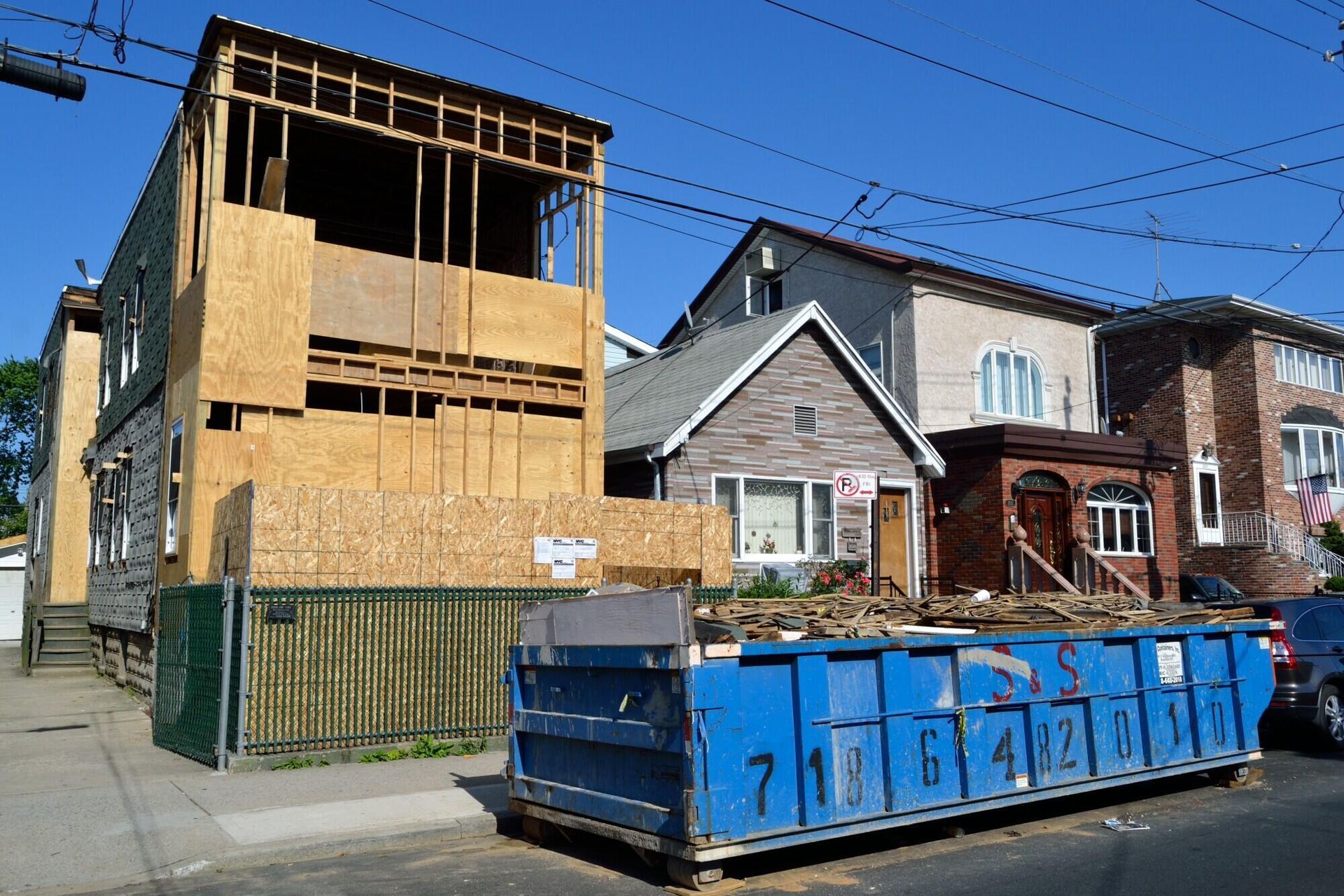How to Properly Dispose of Waste with Commercial Dumpster Rentals

Managing waste efficiently is a crucial responsibility for any business. Whether running a construction site, restaurant, or office, handling waste the right way ensures a clean and compliant workspace. By following dumpster usage guidelines and implementing a structured commercial waste segregation system, we can reduce environmental impact and improve operational efficiency.
Understanding the Importance of Proper Waste Disposal
Disposing of waste correctly isn’t just about keeping the workplace clean—it’s about following regulations, protecting the environment, and improving overall business efficiency. Businesses generate various types of waste, from recyclables to hazardous materials, and failing to manage them properly can lead to fines, safety hazards, and environmental damage.
Using
commercial dumpster rentals is one of the most effective ways to streamline waste management. These dumpsters provide ample space for bulk waste, allowing businesses to maintain cleanliness and organization while adhering to proper waste disposal standards.
Choosing the Right Dumpster for Your Business Needs
Not all dumpsters are the same. Selecting the right size and type for your business is essential for efficient waste handling.+
- Small (10-15 yard dumpsters) – Ideal for small businesses, offices, and minor renovation projects.
- Medium (20-yard dumpsters) – Suitable for mid-sized projects like construction site cleanups or large office waste disposal.
- Large (30-40 yard dumpsters) – Best for large-scale commercial projects, including demolition and heavy industrial waste.
Assessing the volume and type of waste your business produces will help determine the best dumpster rental option.
Dumpster Usage Guidelines for Maximum Efficiency
To get the most out of your commercial dumpster rentals, following a few essential guidelines ensures safety and compliance:
Know What Can and Cannot Be Disposed of
- Allowed: Paper, cardboard, wood, non-hazardous construction debris, furniture, plastics, and metals.
- Not Allowed: Hazardous waste, chemicals, batteries, electronics, and medical waste.
Avoid Overloading the Dumpster
- Exceeding weight limits can result in additional fees and potential hazards. Always distribute waste evenly to prevent tipping or spillage.
Follow Local Regulations
- Each city has its own proper waste disposal laws. Checking local guidelines ensures compliance and helps avoid fines.
Keep the Dumpster Area Clear
- Ensure easy access for pickup and drop-off. A cluttered area can delay waste collection and create safety hazards.
The Role of Commercial Waste Segregation in Efficient Disposal
Sorting waste before disposal improves recycling efforts and ensures compliance with dumpster usage guidelines. Implementing an effective commercial waste segregation system prevents recyclable materials from ending up in landfills and reduces overall waste disposal costs.
How to Separate Waste Efficiently
- Recyclables: Paper, plastic, glass, and metal should go into designated recycling bins.
- Organic Waste: Restaurants and food businesses should separate food scraps for composting or specialized disposal.
- General Waste: Non-recyclable and non-hazardous materials should be placed in designated dumpsters.
- Hazardous Waste: Items like paint, chemicals, and batteries must be disposed of through authorized hazardous waste collection services.
Benefits of Using Commercial Dumpster Rentals for Waste Management
Investing in commercial dumpster rentals isn’t just about convenience—it brings several benefits that enhance business operations and sustainability.
- Improved Cleanliness & Organization: A designated waste disposal area prevents clutter and promotes a healthier work environment.
- Regulatory Compliance: Following dumpster usage guidelines helps businesses meet local and federal waste disposal regulations.
- Cost Efficiency: Proper commercial waste segregation reduces unnecessary disposal fees by maximizing recycling efforts.
- Environmental Responsibility: Businesses that prioritize proper waste disposal contribute to sustainability and reduce landfill waste.
Common Mistakes to Avoid with Commercial Dumpster Rentals
Even with the best intentions, businesses sometimes make mistakes that can lead to fines or operational issues. Here are a few things to avoid:
- Mixing waste types – Throwing everything into one dumpster can lead to increased sorting costs and environmental concerns.
- Ignoring weight limits – Overloading a dumpster can result in additional fees and transportation issues.
- Improper hazardous waste disposal – Businesses must follow legal guidelines to dispose of hazardous materials safely.
- Blocking access – Placing dumpsters in high-traffic areas can lead to collection delays and safety hazards.
How to Schedule a Commercial Dumpster Rental
Working with a reliable waste management provider like St. Charles Dumpster Rentals simplifies the process of proper waste disposal. Here’s how to schedule a rental:
- Assess Your Waste Volume – Determine how much waste your business generates to choose the right dumpster size.
- Check Local Regulations – Ensure you comply with any waste disposal laws in your area.
- Book Your Rental – Contact St. Charles Dumpster Rentals via email or call (636)-245-0315 to arrange a drop-off.
- Follow Disposal Guidelines – Sort waste correctly and avoid prohibited items to ensure smooth collection.
- Schedule Pick-Up – Arrange for timely pick-ups to maintain a clean workspace and prevent overfilling.
Effective Waste Management with Commercial Dumpster Rentals
Maintaining a clean and organized business environment starts with proper waste disposal. By following dumpster usage guidelines and implementing a structured commercial waste segregation system, businesses can ensure compliance, reduce environmental impact, and improve overall efficiency.
For professional waste management solutions,
St. Charles Dumpster Rentals provides reliable and affordable commercial dumpster rental services. Contact us at
(636)-245-0315 or email us at
stcharlesdumpsterrentals@gmail.com to schedule your rental today!
Frequently Asked Questions
1. What are the best practices for ensuring proper waste disposal with a commercial dumpster rental?
To ensure proper waste disposal, always separate recyclables, general waste, and hazardous materials. Follow dumpster usage guidelines by avoiding overloading, disposing of prohibited items, and keeping the dumpster area clear. Implementing a commercial waste segregation system helps reduce landfill waste and ensures compliance with local regulations.
2. What items are prohibited in a commercial dumpster under standard dumpster usage guidelines?
Most dumpster usage guidelines prohibit hazardous materials such as chemicals, batteries, asbestos, medical waste, and electronics. Additionally, businesses should avoid disposing of flammable substances or liquid waste. Always check with your dumpster rental provider for a complete list of restricted items to maintain proper waste disposal practices.
3. How does commercial waste segregation improve business efficiency?
A structured commercial waste segregation system reduces waste management costs, improves recycling efforts, and ensures compliance with environmental regulations. By sorting waste properly, businesses can prevent unnecessary disposal fees and streamline waste collection, making overall operations more efficient.
4. What size dumpster should I rent for proper waste disposal at my business?
The size of the dumpster depends on the volume and type of waste your business generates. Small (10-15 yard) dumpsters work for minor cleanups, while medium (20-yard) dumpsters are ideal for offices and mid-sized projects. Large (30-40 yard) dumpsters are best for construction sites and industrial waste. Choosing the right size helps maintain proper waste disposal and prevents overloading issues.
5. Why is following dumpster usage guidelines important for businesses?
Adhering to dumpster usage guidelines ensures waste is disposed of safely and legally. It helps businesses avoid fines, maintain a clean workspace, and support eco-friendly practices. Proper disposal also minimizes environmental harm and enhances business reputation by demonstrating a commitment to responsible waste management.
Hours Of Operation
Mon-Fri 7:00am-7:00pm
Sat.
9:00am-7:00pm
Sun 10:00am-7:00pm



